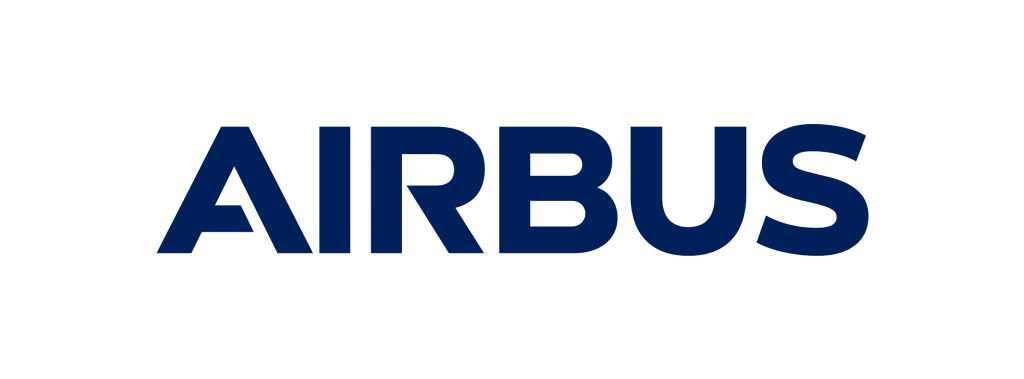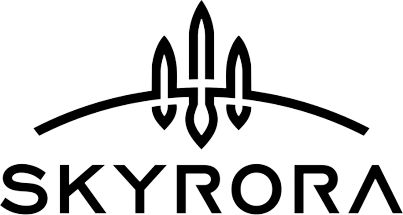NSSC 2023
Conference Programme
Important information
Programme
Our programme gives you an overview of the conference talks and exhibitors. Check below the timetable, confirmed talks, panels and workshops.
Ticket includes entry and catering (lunch, drinks reception, and two coffee breaks per day)
Registration
Upon arrival at University Place Building, get your tickets ready to be scanned and get your badge and conference programme.
If you’re late, it’s not a problem, but you must register at reception before attending any talks.
Times
Saturday start time: 9 am
Saturday end time: 7 pm
Saturday social event: 7 pm – 11 pm
Sunday start time: 9:30 am
Sunday end time: 5:30 pm
Saturday timetable
| Start | End | Length | Lecture Theatre B | Lecture Theatre A |
|---|---|---|---|---|
| 08:30 | 09:00 | 00:30 | Registration - Coffee Reception | |
| 09:00 | 09:30 | 00:30 | Welcome and Opening - Ian Annett (UKSA) | |
| 09:30 | 09:40 | 00:10 | MDA: Growing up in the Newspace Industry, Lessons Learned - Anita Bernie | Airbus Space Competition |
| 09:40 | 10:10 | 00:30 | Observing the NASA DART Impact from a New Observatory in Kenya - Colin Snodgrass | Airbus Space Competition |
| 10:10 | 10:30 | 00:20 | Multi Angle Polarimeter (MAP) on board the Copernicus CO2 monitoring mission - Charlotte Morrison | Airbus Space Competition |
| 10:30 | 10:45 | 00:15 | Inmarsat: Innovation in the Space Sector - Yasrine Ibnyahya | Airbus Space Competition |
| 10:45 | 11:00 | 00:15 | Morning Break | |
| 11:00 | 11:10 | 00:10 | Entrepreneurship Panel & Podcast Live Show | CGI: A Career Journey in IT for the Space Sector - Adam Partridge |
| 11:10 | 11:40 | 00:30 | Entrepreneurship Panel & Podcast Live Show | Is Mars Habitable? - Javier Martin-Torres |
| 11:40 | 12:00 | 00:20 | Entrepreneurship Panel & Podcast Live Show | The Manufacturing Technology Centre: Working collaboratively with the Space Sector for a More Sustainable Future - Ann Swift |
| 12:00 | 12:35 | 00:35 | Our Fragile Space - Protecting the Near-Space Environment - Max Alexander | |
| 12:35 | 13:35 | 01:00 | Lunch (Sponsored by BAE) | |
| 13:35 | 14:05 | 01:05 | Keynote Panel: Your Path to the Stars | |
| 14:40 | 14:50 | 00:10 | The Good Goal: Sustainability Challenge | |
| 14:50 | 15:00 | 00:10 | Spaceflight of the Future - Ian Annett | The Royal Astronomical Society: Working for Astronomers and Space Scientists - Robert Massey (RAS) |
| 15:00 | 15:20 | 00:20 | Spaceflight of the Future - Ian Annett | Space Needs You! Why care about Space Sustainability? - Katherine Courtney |
| 15:20 | 15:45 | 00:25 | Skyrora: A Story of Environmental Launch - Rosie Hull | Space Needs You! Why care about Space Sustainability? - Katherine Courtney |
| 15:45 | 16:00 | 00:15 | Afternoon break | |
| 16:00 | 16:10 | 00:10 | Space Forge: Revolutionising Return from Space - Ben Schofield | How I Learned to Stop Worrying and had a Career in Space Completely by Accident - Nicholas Booth |
| 16:10 | 16:30 | 00:20 | Moon Race 2.0 Panel | How I Learned to Stop Worrying and had a Career in Space Completely by Accident - Nicholas Booth |
| 16:30 | 16:40 | 00:10 | Moon Race 2.0 Panel | BAE: Launching Careers in the Space Sector - Sophia Lee-Roberts |
| 16:40 | 17:10 | 00:30 | Moon Race 2.0 Panel | It is Rocket Science! Solar Physics Research Highlights from Sounding Rocket Instrumentation - Robert Walsh |
| 17:10 | 17:40 | 00:30 | UKSEDS National Awards | |
| 17:40 | 18:40 | 01:00 | Reception (Sponsored by Space Forge) | |
| 18:40 | 22:00 | 03:20 | Social |
Sunday timetable
| Start | End | Length | Lecture Theatre B | Lecture Theatre A |
|---|---|---|---|---|
| 09:30 | 10:00 | 00:30 | Registration - Breakfast | |
| 10:00 | 10:30 | 00:30 | The National Space Strategy: UK Priorities and How to Get Involved - Jenny Turvey | |
| 10:30 | 10:40 | 00:10 | UoM Welcome & Opening - Ciara McGrath | |
| 10:40 | 11:10 | 00:30 | Using Space to Make a World a Better Place - Ciara McGrath | CV Workshop & Speed Networking Workshop |
| 11:10 | 11:40 | 01:30 | Importance of Communication for Career Development - Derek Harris | CV Workshop & Speed Networking Workshop |
| 11:40 | 11:55 | 00:15 | Coffee Break | |
| 11:55 | 12:05 | 00:10 | Diversity in Space Careers Panel | Lancashire Enterprise: Lancashire in Space - Miranda Baker |
| 12:05 | 12:20 | 00:15 | Diversity in Space Careers Panel | SpaceCareers.uk: Find Your Place in Space - Ewan Wright |
| 12:20 | 12:40 | 00:20 | Diversity in Space Careers Panel | UKSEDS IOSM Winners |
| 12:40 | 13:00 | 00:20 | Diversity in Space Careers Panel | The Institute of Physics and our Limit Less Campaign - Tony Whitehead |
| 13:00 | 14:00 | 01:00 | Lunch (Sponsored by BAE) | |
| 14:00 | 15:00 | 01:00 | Keynote Panel: Building a thriving Northern Space Sector | |
| 15:00 | 15:30 | 00:30 | The Illusion of Space Safety and Sustainability - Hugh Lewis | |
| 15:30 | 16:30 | 01:00 | Designing an Off-World Habitat Workshop | Hunting Exoplanets: JWST Workshop |
| 16:30 | 17:30 | 01:00 | Annual General Meeting |
Keynotes
Ian Annett
Deputy Chief Executive Officer
UK Space Agency
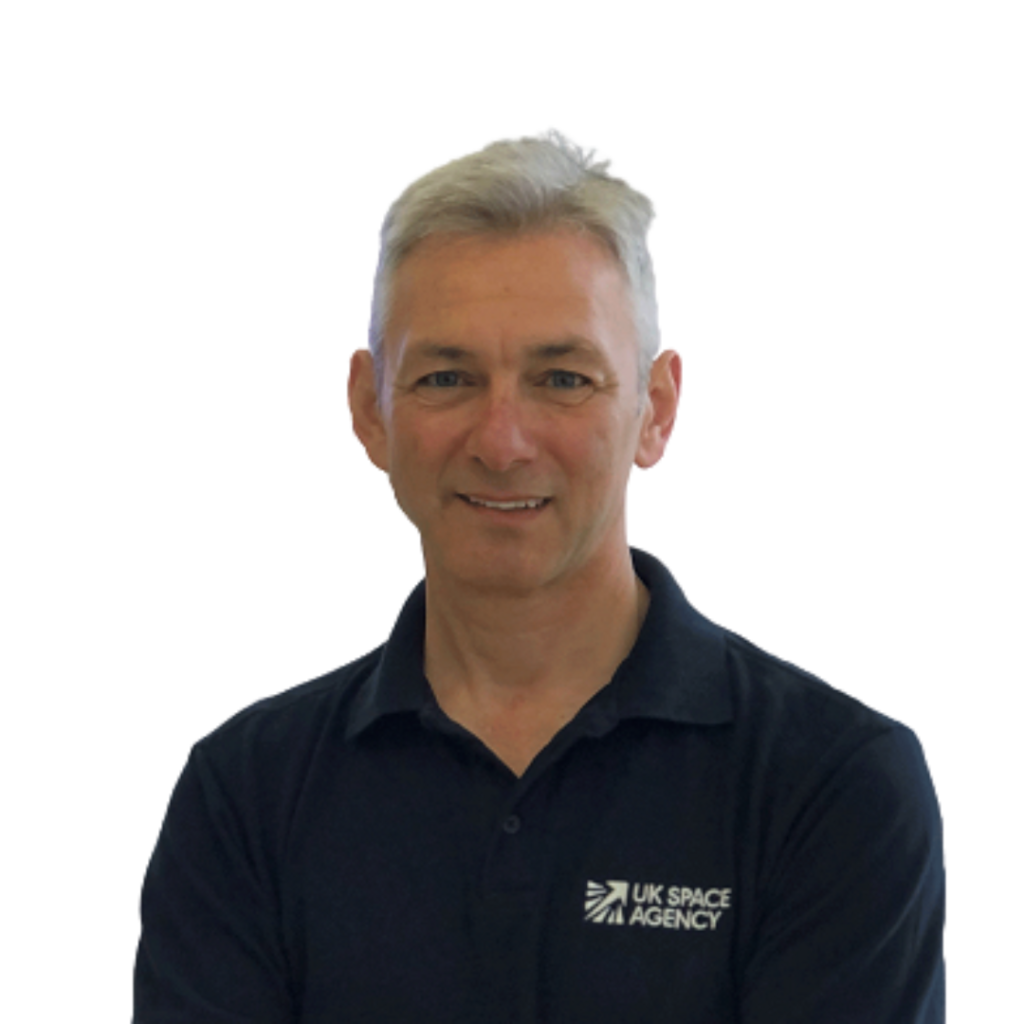
Ian joined the UKSA in January 2020 as Deputy CEO for Programme Delivery. He is responsible for the delivery of all National space programmes across the Agency, including the UK Spaceflight programme. He chairs the UKSA Delivery Board and is the Agency’s head of profession for programme and project delivery. He was formerly in the Royal Navy as a weapons and communications specialist and was the Programme Director to the Skynet 6 programme, a Senior Responsible Officer for maritime Information Warfare programmes and the Chief Information Officer for the Royal Navy.
Successful aspects of UK spaceflight and the future plans for spaceflight from the UK.
Jenny Turvey
UK Space Strategy Lead
Department for Science, Innovation and Technology
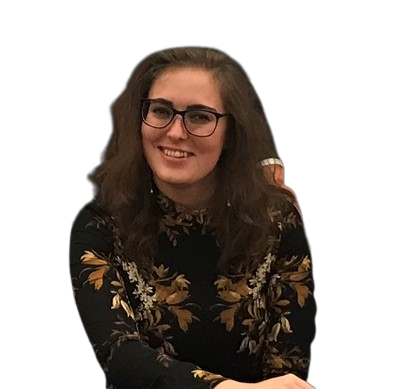
Currently leading on UK space strategy following the publication of the UK National Space Strategy in 2021, Jenny has a strong background in government infrastructure and strategy. Some of her priorities for UK space policy include developing a strong skills pipeline for the sector, delivering regional growth and ensuring the space supply chain decarbonises alongside the wider UK economy in the coming years.
The UK Government published its first ever National Space Strategy in September 2021, setting out the current strengths of the UK space landscape and its ambitious vision for the future. This talk will summarise that vision, some of its challenges, and how you can get involved.
Speaker talks
Anita Bernie
MDA Space
Anita Bernie is the Managing Director of MDA UK which is based at the Harwell campus . Anita is an Honorary Group Captain in the Royal Air Force; a member of the Board of Directors of small satellite pioneers AAC Clyde Space; and a Trustee of The Air League. She possesses an Aerospace Engineering Degree and an MBA. She is passionate about nurturing talent from all backgrounds and levels; using her platform to be an ally and role model to those considering or developing their science and engineering careers, and is active in STEM and Diversity & Outreach activities.
I graduated with my Aerospace Engineering degree in the mid-1990s and feel incredibly lucky to have started my career in the space industry before “Newspace” was even a word! My career journey has led me to achieving my childhood dream of running a space company that is involved in some very cool projects – including returning to the moon. In this session I will share a few of MDA UK’s exciting projects and contribute some of the lessons I’ve learned along the way to accomplishing my personal definition of success.
Colin Snodgrass
The University of Edinburgh
Colin Snodgrass is Professor of Planetary Astronomy at the University of Edinburgh, working on comets and asteroids. He studied astronomy at St Andrews and obtained his PhD from Queen’s University Belfast in 2006, and has worked at the European Southern Observatory in Chile, the Max Planck Institute for Solar System Research in Germany, and the Open University. His research combines observations with telescopes and exploration of the Solar System with spacecraft, including roles in the ESA missions Rosetta, Comet Interceptor and Hera, and the recent NASA DART mission.
I will describe the NASA DART planetary defence mission, which successfully changed the trajectory of a small asteroid in September 2022, and our observations of the results using telescopes on Earth. As the spacecraft was destroyed during the controlled collision, Earth-based observations were critical for measuring the effectiveness of the experiment. The very moment of impact itself was only visible from areas around the Indian Ocean, where there are relatively few observatories. The University of Edinburgh led a programme to set up a new observatory in Kenya to capture images of the DART impact. I will discuss the results of the DART mission, and the challenges and future opportunities presented by establishing a new observatory in this remote location in Africa.
Charlotte Morrison & Russell Hills
Thales Alenia Space
Charlotte Morrison is a systems and optical engineer who has been with Thales Alenia Space in the UK for 4 years. Her primary focus is the MAP instrument that will fly on board the CO2M mission, for which she performs a variety of systems engineering and optical engineering activities. Her talk will discuss the MAP instrument that will fly on board the Copernicus CO2M mission. Copernicus is the ESA and the European Commission’s Earth observation program. MAP (Multi-Angled Polarimeter) will launch on the CO2M mission in 2025 and will measure aerosols.
Russell Hills is a spacecraft systems engineer for Thales Alenia Space in the UK. During his 7 years at the company, he has undertaken a wide range of satellite and mission studies across both the Systems Engineering and the Advanced Concepts teams, with a very heavy focus on VLEO concepts. He is currently the technical lead for the Skimsat VLEO platform IOD mission.
Yasrine Ibnyahya
Inmarsat
Yasrine is the Senior Director of Advanced Concepts and Technologies, within the CTO division at Inmarsat. She has worked over 17 years in the space industry and is now responsible for leading breakthrough innovations and mission concepts. She graduated from University of Cambridge, UK where she obtained in 2018 an Executive MBA degree. She also holds a Master in telecommunications engineering.
Adam Partridge & John Glover
CGI
Adam has been a Technical Graduate in Space, Defence and Intelligence within CGI for 6 months. Before joining CGI he studied maths at Warwick University with some computer science modules, and then did a gap year in which he worked in some part-time jobs in healthcare and travelled. Since joining CGI Adam has quickly become involved in the exciting and varied tasks which his team undertakes, performing technical maintenance and bug fixing on satellite simulation software and he is very eager to share his experience.
John is a Director Consulting Delivery within Space, Defence and Intelligence, CGI IT UK. His work ranges from short research studies through to large scale fixed price developments of high integrity systems in both the Space and Defence sectors. John has an interest in signal and image processing, and has a PhD within the field of Artificial Neural Networks. John is currently the Project Manager for GENS (GNSS Event Notification System) leading a team in the development of a demonstrator for the detection, identification and classification of GNSS interference events. John is a Chartered Engineer, MIET and SMIEEE.
Join John and Adam as they share their experience of working in the space sector with CGI. John will discuss the diverse career pathways available, including technical, project management and business development roles, while highlighting the continuous growth opportunities provided by CGI. Adam will share his personal journey of joining CGI as a graduate and his thoughts on the company’s program for University graduates. Don’t miss this exciting opportunity to learn about careers in the space sector and CGI’s unique company culture.
Javier Martin-Torres
University of Aberdeen
Javier Martín-Torres is a NASA award-winning theoretical physicist with over 20 years of experience working on space missions to study Earth and other planets. He has an extensive international career and is one of the world’s most widely cited planetary researchers. He has worked at several institutions in the US and Europe, and is currently based at Luleå University of Technology, Sweden. Prof. Martín-Torres has been involved in most current and future Mars missions and has been the Principal Investigator of the environmental station of the Curiosity rover since 2012. He advises the European Space Agency (ESA) on the strategy for science on the Moon and Mars, and is the Principal Investigator of the instrument HABIT, designed to harvest water from the atmosphere of Mars. Recently, the UK Space Agency has funded him to work with the Japanese Space Agency (JAXA) in the development of the first Japanese mission to Mars.
The talk will focus on the habitability of Mars and the data gathered by the Curiosity rover, which has found evidence of liquid water, organic molecules, and fixed nitrogen on the planet. These discoveries have sparked scientific questions and challenges, particularly regarding the possibility of life on Mars. Additionally, future human exploration of Mars requires access to in-situ resources. The talk will also address the need for coordinated efforts to respect planetary protection protocols and update knowledge about Martian habitability conditions.
Ann Swift
Manufacturing Technology Centre
Ann Swift is the Space Sector Development Manager and has worked to support the growth of the space sector in various roles since 2014. Ann is leading on expanding the MTC’s involvement in the space sector in the UK and is enabling projects and programmes of work to support the sector now and for the future. Cy Keogh is an MTC technical lead in the design and delivery of a high level capability- based Supply Chain Readiness Assessment (SCRA) tool which also provides a measure of organisational resilience. CY is also supporting some national work on Space Based Solar Power and is actively contributing to the UK Space Energy Initiative which will lead the development of Space Based Solar Power for the UK, offering large scale, safe, and secure energy day and night, through all seasons and weather.
The Manufacturing Technology Centre (MTC) is focussed on the accelerated growth of industrial sectors including Space. Through development and application of innovative manufacturing technologies, the MTC supports industrial sectors to reach the next step in their commercial journey. We are involved in a number of UK space activities and initiatives and will talk about our work. We will also share news on our latest space related training courses and our work in UK space clusters.
Max Alexander
Space photographer
An international photographer and creative director, Max Alexander specialises in science communication through visual storytelling. He works for a large number of prestigious organisations around the world including the UK Space Agency, European Space Agency, European Southern Observatory, UK research councils, book publishers and magazines. He has photographed Nobel Prize winners, astronauts and world leaders. Max has had two science-led exhibitions at the Royal Albert Hall: Explorers of the Universe and Illuminating Atoms. His passion for understanding the universe and making it meaningful to others has motivated him to work in this arena – and he is a Fellow of the Royal Astronomical Society.
There are now more than 100 million human-made pieces of space debris circling our planet – the vast majority of them in the same low Earth orbit as thousands of satellites that support and enable everyday life on Earth. This talk is based on my exhibition Our Fragile Space, which raises awareness around space sustainability. It combines reportage and portraiture to demonstrate the fragility of space, highlight the increasing threat of space debris to our environment (and our way of life), and to centre the people and initiatives trying to do something about it. The photography exhibition is also a catalyst for wider science communication and engagement, for the public, industry and policymakers.
Nicole Flamarique
The Good Goal
As part of the UKSEDS sustainability approach to the conference, we are partnering up with The Good Goal to launch a sustainability challenge and track the positive impact of our conference delegates!
Robert Massey
Royal Astronomical Society
Dr Robert Massey is Deputy Executive Director of the Royal Astronomical Society. Robert began his career in astronomy at the Universities of Leicester and Manchester, completed his PhD studying the Orion Nebula, worked as a teacher in Brighton, and spent eight years at the Royal Observatory Greenwich, where he developed an unbridled passion for bringing astronomy and space science to the wider public. These days he looks after the outward facing work of the Royal Astronomical Society, including being a standing guest on the number one Supermassive podcast, and enjoys the darker night skies of his family home in Sussex.
At 203 years old, and with than 4,000 members from 70 countries, the Royal Astronomical Society is one of the largest organisations for space scientists and astronomers in the world. Early career space professionals are one of our priorities, and we are very happy to be supporting the National Student Space Conference. In this talk you can find out more about our work, about the benefits for membership, our plans for the future, and what we can offer you as you start your space career.
Katherine Courtney
GNOSIS
Katherine is a Strategic Advisor, Non-Executive Director, former UK Space Agency CEO and Chair of the Global Network on Sustainability in Space.
Her career spans business innovation, start-up and growth in the UK, Europe, North America and other geographies; and she spent nearly 15 years leading
UK government policy and programmes.
While at the UK Space Agency, she initiated the UKLaunch Programme, introduced the Space Industries Act and led €1.4bn investment in collaborative space missions through the European Space Agency.
We are increasingly reliant on space for our everyday lives. And space-based data and applications have a critical role to play in meeting the UN’s Sustainable Development Goals. Yet, we seem to take the space environment largely for granted. Is there enough space in space for all the things we want to do there? Do we understand the space environment well enough? What are the risks and the future opportunities? This talk will consider these questions and how YOU can be part of protecting space for future generations.
Rosie Hull
Skyrora
Rosie is a Geology with Planetary Science graduate of the University of Manchester. After graduating she began working as a Business Analyst for Skyrora, and now works as a Senior Business Development Associate. Rosie primarily works towards finding collaboration and grant funding opportunities for Skyrora, while also working in general business development which includes attending conferences and events. She regularly works alongside the engineering team at Skyrora, following closely with their work to allow for the best possible opportunities to be found for the team.
Skyrora is a launch vehicle provider based in Scotland, that is developing an orbital rocket, Skyrora XL. As the space sector continues to grow in the UK, the potential environmental effects of rocket launch are becoming a prevalent consideration. This talk will cover how Skyrora is taking step changes towards becoming a more environmentally responsible launch vehicle provider through ground breaking innovations in manufacturing and design.
Ben Schofield
Space Forge
Ben is a Systems Engineer at Space Forge, having recently graduated from the University of Sheffield with an MEng in Aerospace Engineering.
Learn how Space Forge is leveraging the unique conditions of the space environment to develop next generation materials and experiments, and how we are employing novel heat shield and high-accuracy prediction software to bring down costs at every stage and improve landing accuracy.
Nicholas Booth
Engineer & Author
Nicholas Booth is the youngest Briton to have worked at NASA JPL but embarked on a career in the media – he covered space for newspapers in the nineties, then television and online publishing but now writes books and scripts. He still wants to be the first person to land on Mars. Nick’s career is testimony to the fact that you will always find a niche in space and have some fantastic experiences
Nick originally wanted to be an astronomer who thought he would write about his research, but not being numerate enough, realised words rather than equations were his forte – and had many adventures in covering space research including meeting Richard Feynman, asking Arthur C. Clarke what animal he would like aliens to be like (“Doggy”), covering the first Hubble missions and witnessing history in the making without realising it at the time
Sophia Lee-Roberts
BAE Systems
Sophia is a Gradate Project Manager at BAE Systems Digital Intelligence, working primarily on projects within their space business. She graduated from King’s College London in 2021 with a degree in Physics and Philosophy. During her time at university, Sophia sat on committees for a number of space outreach organisations, including UKSEDS and the Space Science and Engineering Forum (SSEF).
BAE Systems has decades of experience in space technologies, including telemetry tracking and command processors, waveforms, electronics, antennas and digital signal processing and analytics. With the acquisition of In-Space Missions, we can now design, build and operate full satellites. Our space business sits in BAE Systems Digital Intelligence, which is home to 4,800 digital, cyber and intelligence experts. Sophia will discuss her experience as a Graduate at BAE Systems Digital Intelligence and the opportunities to get involved in emerging space projects.
Robert Walsh
UCLan Space
Robert is a Professor of Solar Physics in the Jeremiah Horrocks Institute for Mathematics, Physics and Astronomy at the University of Central Lancashire (UCLan). He is a leading expert on the analysis of space-based solar observations coupled to computational modeling of the Sun. With over 50 journal papers and >£1M of personal research funding, Robert has developed many international collaborations, including being institutional lead on NASA’s Marshall Space Flight Center’s sounding rocket programme. He has received a number of national awards for science communication during his career including the BAAS Lord Kelvin Award (2005); and the IOP in Ireland’s Tyndall Lecturership (2008) and the Royal Astronomical Society Annie Maunder Medal (2021).
For over 40 years NASA’s Sounding Rocket Program has provided vital scientific, technical, and educational contributions to space science and is still one of the most robust and versatile ways to undertake innovative space-based research. While the time in space is brief (typically approx. 15 minutes from launch to landing), sounding rockets are low cost due to being sub-orbital and the reusability of rocket hardware. The University of Central Lancashire have been collaborating with NASA’s programme for over a decade and this talk will address what it is like to part of such a “successful rocket team” (and what happens when things don’t go according to plan!). The presentation will focus on results from the unique solar datasets obtained UCLan researchers and outline future flights in 2023 and 2024.
Ciara McGrath
The University of Manchester
Dr Ciara McGrath is a Lecturer in Aerospace Systems at the University of Manchester, with expertise in Astrodynamics and Space Mission Design. She was the IET’s Young Woman Engineer of the Year 2021, and has appeared on TV, radio, and podcasts, and given a TEDx talk, promoting engineering and the space industry to a wide audience. She has worked and studied in the field of space engineering in five countries, and is an Associate Editor at the AIAA Journal of Spacecraft and Rockets.
More than 6000 spacecraft are currently orbiting just above our heads, less than 1000km above the surface of the Earth. These spacecraft look down on us – providing vital services that we use every day, and underpinning our work to address the UN Sustainable Development Goals. In this talk we’ll look at how these spacecraft are making the world a better place, and talk about the opportunity for future engineers and scientists to develop radically new approaches to space mission design that will continue to provide vital data needed on Earth, while protecting our environment for future generations.
Derek Harris
Skyrora
I have worked at the Business Operations Manager since 2018 for Skyrora, which means I generally guide our commercial departments ensuring that the efficiency and smooth running of our commercial requirements. On top of the HR and sales functions I carry out I have also stepped up to become the CEO of Ecosene Limited. Ecosene is a spin out from Skyrora bringing technology to process waste plastics to usable fuels.
A session where I will take part with my mentee Divyanshi Gupta. I will discuss how being seen by potential employers can build a personal brand.
Miranda Baker
East Lancashire Chamber of Commerce
Miranda Barker CEO, East Lancashire Chamber of Commerce and Chair, RedCAT. The Chamber works for its members and East Lancashire’s business community, providing advice and commercial services, spanning international trade, creative design, business training and sustainability through Chamber Low Carbon and RedCAT. Miranda is Lancashire LEP Director, co-chairing the Energy/Low Carbon strand, and Co-Chair of British Chambers of Commerce Climate Challenge Group. Previously a professional environmental consultant, Miranda established a consultancy driving the commercialisation of low carbon technologies, with clients across food, chemicals, pharma, energy, waste, farming, manufacturing, FMCG, engineering, automotive and aerospace, in UK, northern, western and eastern Europe, Brazil, USA and China.
Lancashire has ambitions to be a leading destination for the development and support of the Space sector in the UK, contributing to the work of the North West Space Cluster. At the geographical centre of Great Britain with significant assets in academia, defence and cyber-security, manufacturing, energy and low carbon and a rich history of innovation, Lancashire is uniquely placed to deliver a first-class contribution to the emerging Space sector.
Ewan Wright
SpaceCareers.uk
Ewan is a volunteer with SpaceCareers.uk in the leadership team. He is currently studying for a PhD at the University of British Columbia, Vancouver, focusing on the sustainability of outer space. Outside of work he enjoys being on the sides of (preferably snowy) mountains.
Looking for advice and opportunities to work in the space sector? SpaceCareers.uk is here to help you find your place in space. Come along to our talk for insights into the huge variety of different career opportunities, and advice on making your first steps in the sector. We look forward to seeing you there!
Tony Whitehead
The Institute of Physics
Tony is the Fellowship Officer at the Institute of Physics, with a main focus on the Fellows member category. However, he also works with the Student Engagement team and is a Team Leader for the IOP’s Limit Less Campaign. Tony is a graduate of the University of Greenwich, where he was involved in student engagement at the students’ union and later at the university as a graduate. He then moved to the Institute of Physics in 2018 as the Student Engagement Officer before moving over to the Fellowship Officer role.
In this talk, Tony will take you through the benefits of the Institute of Physics’ Associate Membership and how they can help students to develop, make contacts and prepare for work after graduation. He will then Talk about the IOP’s Limit Less campaign which aims to support people from backgrounds underrepresented in physics, to do physics after the age of 16. A brief introduction to campaign activities and how you can support young people to change the world and fulfil their potential by doing physics.
Hugh Lewis
University of Southampton
Hugh is a Professor of Astronautics at the University of Southampton. He has worked in the fields of space debris and space sustainability for more than 20 years. Hugh represents the UK Space Agency at meetings of the IADC and at meetings of the United Nations Committee on the Peaceful Uses of Outer Space as an expert on space debris, space operations and space situational awareness. He provides expert opinion to industry and academia, and commentary to journalists worldwide. Hugh has appeared on the BBC’s Horizon programme and in a special feature accompanying the DVD release of the movie “Gravity”
Space safety and space sustainability have become critical concepts across industry, academia, and government, with efforts being made by all actors to ensure the safe and sustainable use of Earth orbits over the long term. But what do we really mean by “safe” and “sustainable”? How do we know if our behaviour in orbit will meet these principles? And do we fully understand the environmental, technological and economic consequences of meeting them?
Entrepreneurship
Panel & Podcast
Live Show
Join us for a dynamic panel discussion featuring leading entrepreneurs in the space sector. Hear from industry experts as they share their experiences and insights on the challenges and opportunities of starting a business in this exciting field.
Gain valuable perspectives on innovation, funding, and creating impact in the space industry. Don’t miss this unique opportunity to network with like-minded individuals and learn from the best in the business!
Isaac Caletrio
Podcast Producer (Host)
UKSEDS
Zainab Qasim
Start-up & Venture Lead
Seraphim Space VC
Hira Virdee
Founder and CEO
Lumi Space
Yuk Chi Chan
Founder and CEO
Charter
Craig Brown
Director of Investment
UK Space Agency
Daria Filichkina
COO
AstroAgency
Your Path
to the Stars
Astronaut adjacent keynote panel
Experience the thrill of space exploration with our astronaut adjacent panel discussion. Meet astronaut preparators and hear about how they support incredible journeys to space and back.
Learn about the training and preparation, get inspired by their stories of perseverance and determination, and gain valuable insights into what it takes to become an astronaut.
Vix Southgate
Founder (Host)
Vixen International
Anna Fogtman
Crew Operations Scientist
European Astronaut Centre
Antonio Fortunato
Ground Segment and Project Engineer
European Space Agency
Livia
Savioli
Astronaut Instructor
European Astronaut Centre
Moon Race 2.0 panel (online)
A captivating discussion on the latest developments in moon exploration and colonization efforts!
Hear from space agencies, private actors, and professional experts as they share their perspectives on the role of technology and innovation in this exciting new frontier.
Discover how they plan to work together to establish sustainable human settlements on the moon and what it will take to make it a reality in the XXI century.
Charlotte Croison
Senior Consultant (Host)
Euroconsult
Amna Khalifa Busoud
Mechanical Engineer
Mohammed Bin Rashid Space Centre
Mamatha Maheshwarappa
Payload Systems Lead
UK Space Agency
Anita Bernie
Managing Director
MDA Space
Paolo Ridolfi
Chief Engineer
Airbus
Sharon Cobb
Programme Manager
NASA Space Launch System
Diversity in Space Careers Panel
This panel aims to champion equality, diversity, and inclusion in the space sector.
Hear from a wide range of professionals, spanning space industry and academia, through a series of talks and panel discussions. This will give insight into their work, research, and experiences in overcoming personal barriers.
Join us in discussing the importance of diversity and hear from experts in how to support yourself and others in making the sector truly inclusive.
Anushka Sharma
Founder (Host)
Naaut
STEM the violence
Ciara McGrath
Lecturer in Aerospace Systems
University of Manchester
Maryam Sani
Education Lead
Space Prize
Emma Jackson
Senior Recruiter
EVONA
Alan Cross
Development Manager
North West Space Cluster (STFC-UKRI)
Building a thriving Northern Space Sector
Get a glimpse into the thriving space industry in the North at our panel discussion. Hear from leaders in the field as they share their experiences and insights on the challenges and opportunities of building a space sector in the region.
Learn about the innovative projects, cutting-edge technologies, and exciting new frontiers being explored.
Discuss with industry experts and discover the potential for growth and impact in the Northern space sector. This is a unique opportunity to learn and connect with the best in the business.
Philip Carvil
Head of North West Clusters (Host)
Science, Technology and Facilities Council (STFC-UKRI)
Elaine Scott
Centre Manager
North East Satellite Applications Centre of Excellence
Nathan Shoesmith
Emerging Sectors Strategic Development
Lancashire Enterprise Partnership
Alan Cross
Development Manager
North West Space Cluster (STFC-UKRI)
Bob Morris
Chair
Northern Space Consortium
Hina Khan
Executive Director
Space Scotland
Workshops and skill sessions
The Great JWST Exoplanet Challenge
Dr. Eamonn Kerins, University of Manchester
Eamonn Kerins is an astrophysicist working at Jodrell Bank, University of Manchester. He is an expert in the detection of exoplanets using gravitational lensing, and his team recently announced the first exoplanet discovered from space using the microlensing technique. He leads the global SPEARNET survey that is probing the atmospheres of hot exoplanets. He also leads the Exoplanet Science Working Group for the European Space Agency’s Euclid mission, which is due for launch in July 2023.
In the Great JWST Exoplanet Challenge the Exoplanet Group here at the Jodrell Bank, University of Manchester, is teaming up with UKSEDS to recruit as many of you as possible to look for evidence of water within the atmosphere of one of the exoplanets that JWST has been observing.
This hands-on workshop explores the latest tools and techniques for finding exoplanets with the JWST. Learn and gain practical skills in analyzing data to discover new worlds beyond our solar system.
This is a unique opportunity to dive deep into the cutting-edge science of exoplanet hunting and learn about the JWST’s role in this exciting field!
If you want to take part then visit the link below for more details.
You’ll be required to bring a laptop to take part in this workshop. Plus, there is some steps you need to follow before attending – click below for more!
CV Workshop & Speed networking
Exhibitors & HR representatives
Boost your job prospects and make valuable connections in the space industry with this workshop.
Learn from experts on how to write a standout CV, and then put your skills to the test in our speed networking session. Meet industry professionals and connect with potential employers. This is a must-attend event for anyone looking to take their career in the space sector to the next level.
Remember to bring your CV and any questions you might have!
Designing an Off-World Habitat
Mark Waters, 4wardFutures
Join this workshop to explore and discuss the challenges humans are going to face in creating off world habitats. In this workshop, the mission of creating a sustainable society on Mars will be used to explore these challenges and how they can be addressed. You will work in teams to look at the different challenges humans will face travelling to and living on Mars – and the people and technology that will be required to address these challenges.
Mark is Head of Programme Development at the careers education Charity 4wardFutures. 4wardFutures works to empower young people of all backgrounds to take control of their future career opportunities by engaging with employers, universities and professional organisations against the backdrop of a world that is rapidly changing through the impact of innovation and technology. Mark has spent over 30 years working across a range of education sectors. Throughout his career, he has always had a keen interest in how the development of collaborative partnerships between employers and young people can support their successful progression into their future lives and careers.
Poster sessions
If you’re grabbing a coffee on your morning break, why not come and visit the poster exhibition in the outdoor marquee! UKSEDS members will be presenting projects they have been involved in this past year.
Learn more about the work teams have completed taking part in UKSEDS competitions, for their projects and their industry internships.
Team Gyrocket won the 2021-2022 National Rocketry Championship with their ingenuitive autorotation based alternative recovery system as a payload. The team from the University of Bristol devised a system that was deployed with the G class motor’s ejection charge and employed a Autogyro inspired direct control mechanism to allow it to guide itself back to the launch site on descent.
Human-made satellites allow to broaden the knowledge of the world by discovering new stars and exoplanets, observing Earth, performing X-ray measurements and more. All satellites need to be controlled from Earth by the Flight Control Team (FCT) consisting of experts from a wide range of fields. The satellite INTEGRAL is controlled from the astronomy control room in the European Space Operations Centre (ESOC) together with XMM-Newton and Gaia. Automation allows a single person to control three spacecrafts simultaneously and helps to reduce operational costs. This project involved the automation of transponder swaps scheduling and mission schedule validation.
Our poster will document the rise of a brand new rocketry society in the absence of an engineering department at our university. As avid hobbyists, we want to bring model rocketry to everyone, and our mission with Nordri was to make a simple, cheap and accessible L1-capable build. The cheap construction costs allowed us to learn through building and testing many prototypes, and our poster will take you along on our learning journey.
KCL Space Rocketry Team is a first-time contestant in the NRC, we have emerged with an unyielding passion for building rockets and pushing the limits of their capabilities. We are determined to innovate and experiment with new rocket designs that will take us to new heights. With a strong focus on teamwork and perseverance, this group of rocket enthusiasts is set to make a mark in the world of rocketry and become a force to be reckoned with.
During Summer 2021, Ahlam had the opportunity to assemble a cosmic ray counter, the CosmicWatch, as part of the King’s Undergraduate Research Fellowship (KURF). She undertook this research fellowship alongside Dr Teppei Katori, an experimental particle physicist and academic working within the Physics Department at King’s College London. The project coincided with Dr Katori’s research with the IceCube Neutrino Observatory in Antarctica. The CosmicWatch detector was built initially to tag the position of muons within the IceCube experiment.
NSSC 2023: Exhibiting organisations & sponsors
Gold sponsors
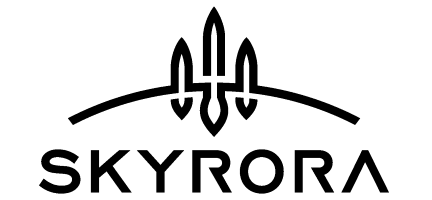

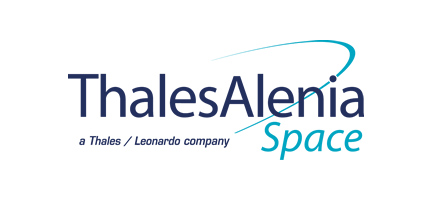
Silver sponsors


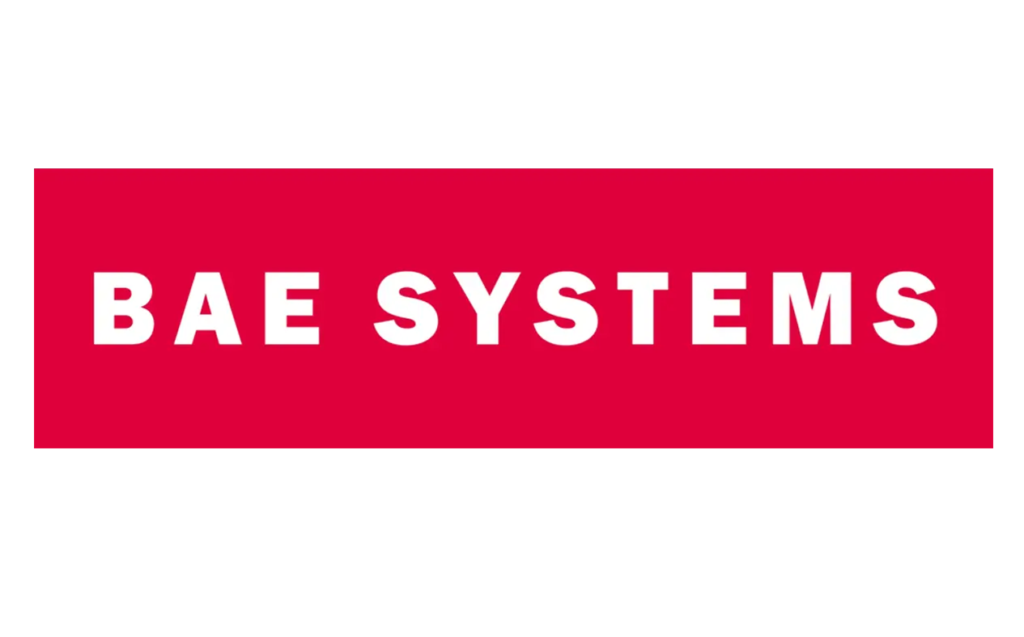
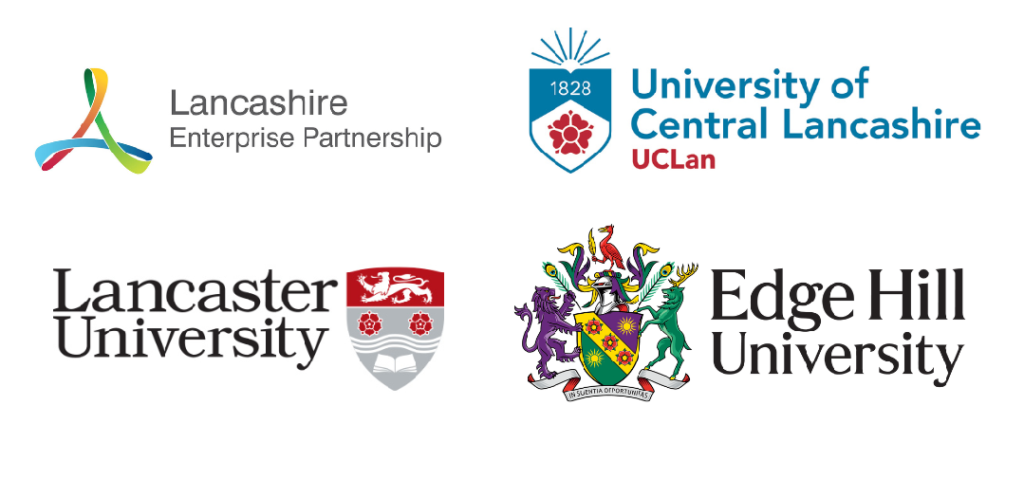
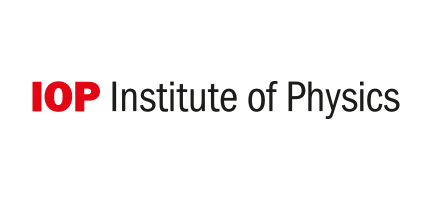
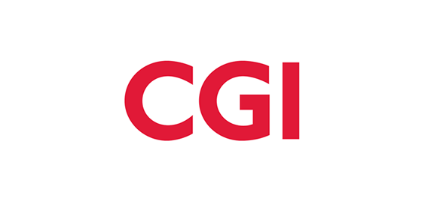

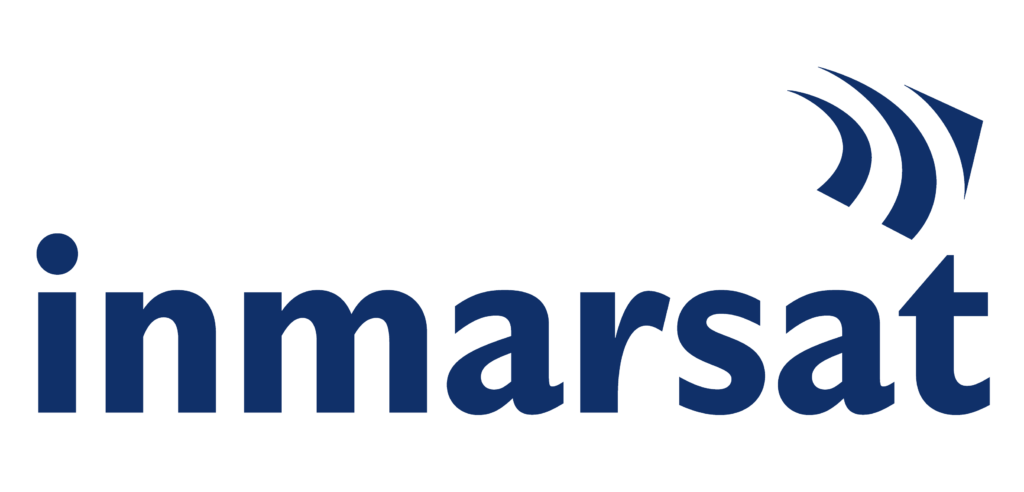
Bronze sponsors
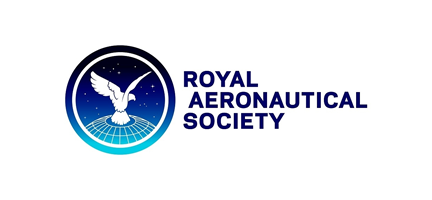


Supporters
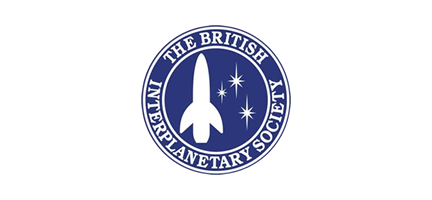
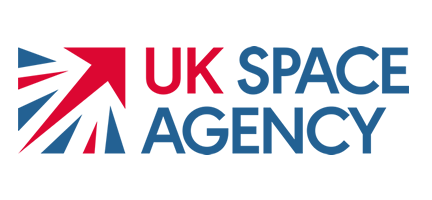
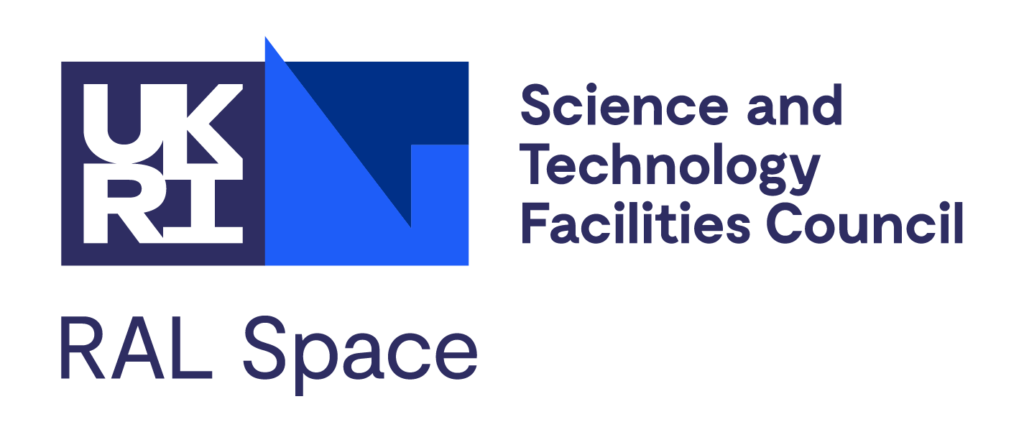

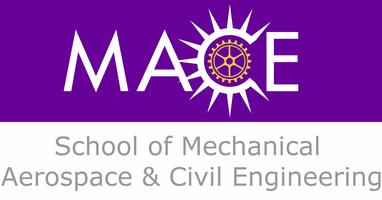
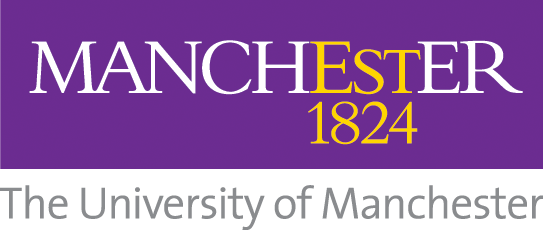
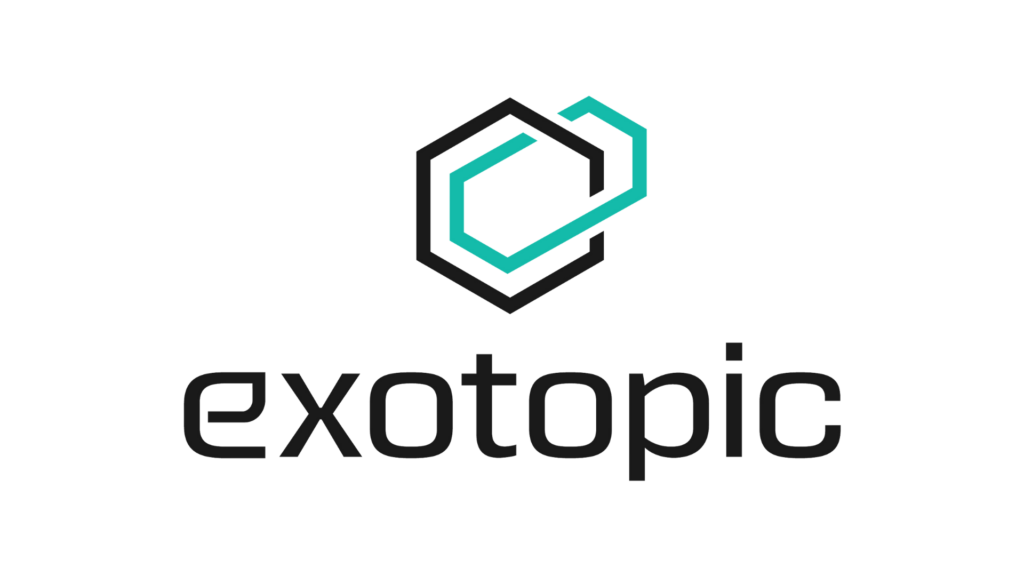

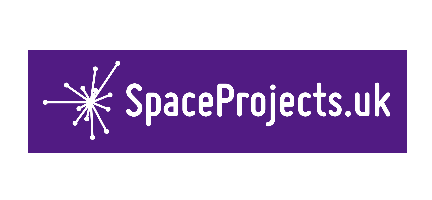
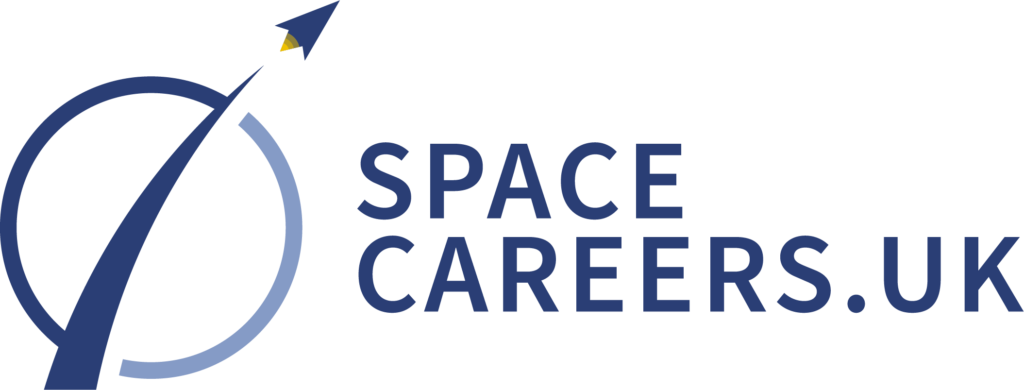
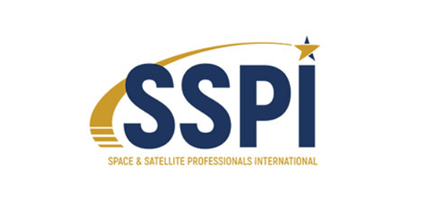
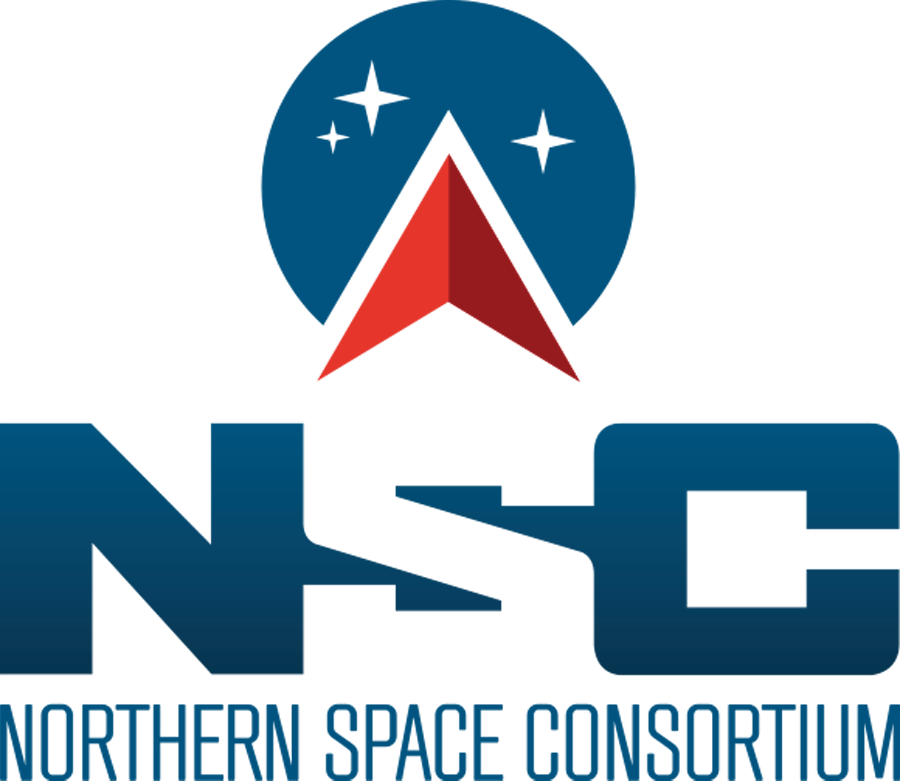


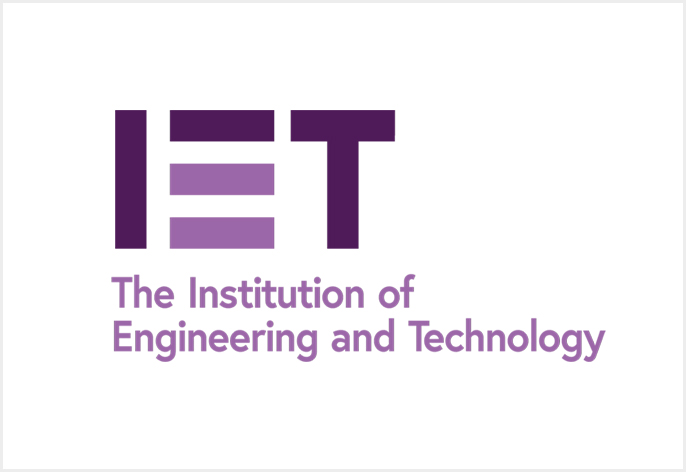

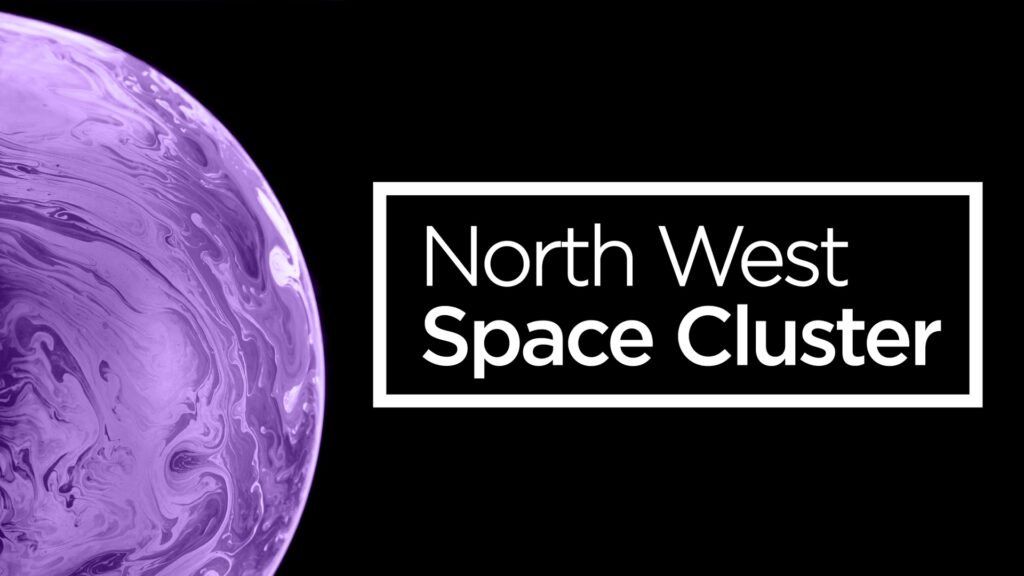
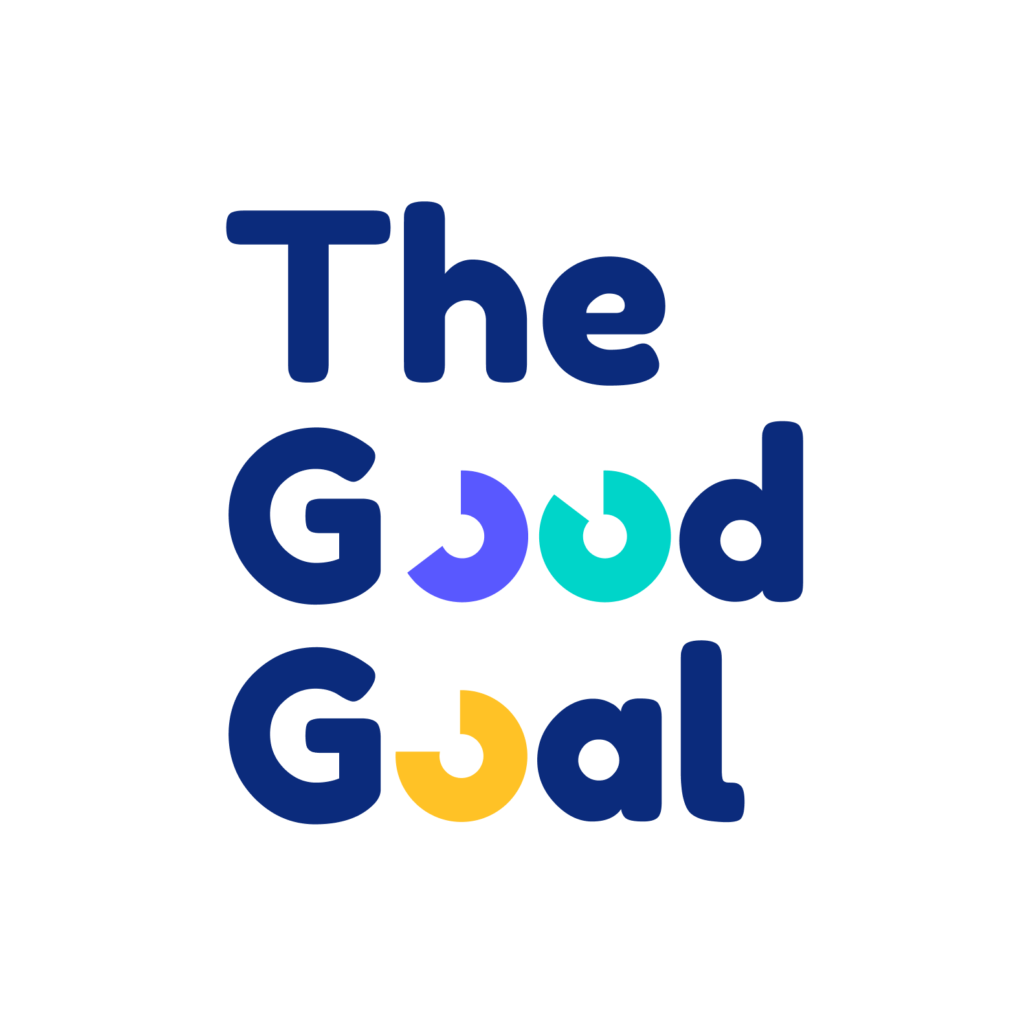
Local hosts

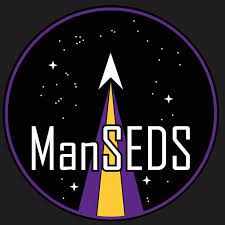

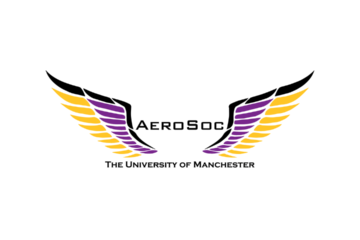

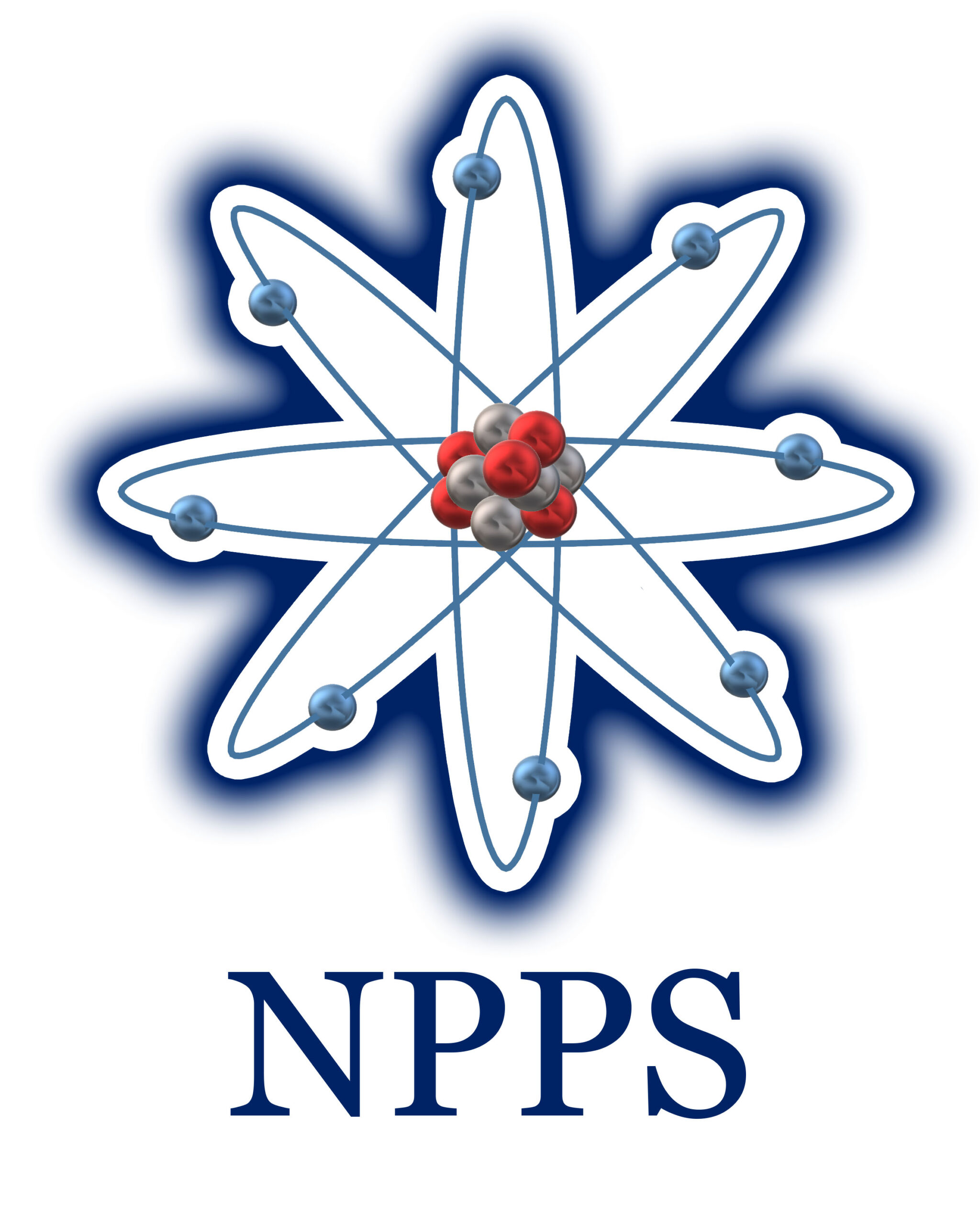
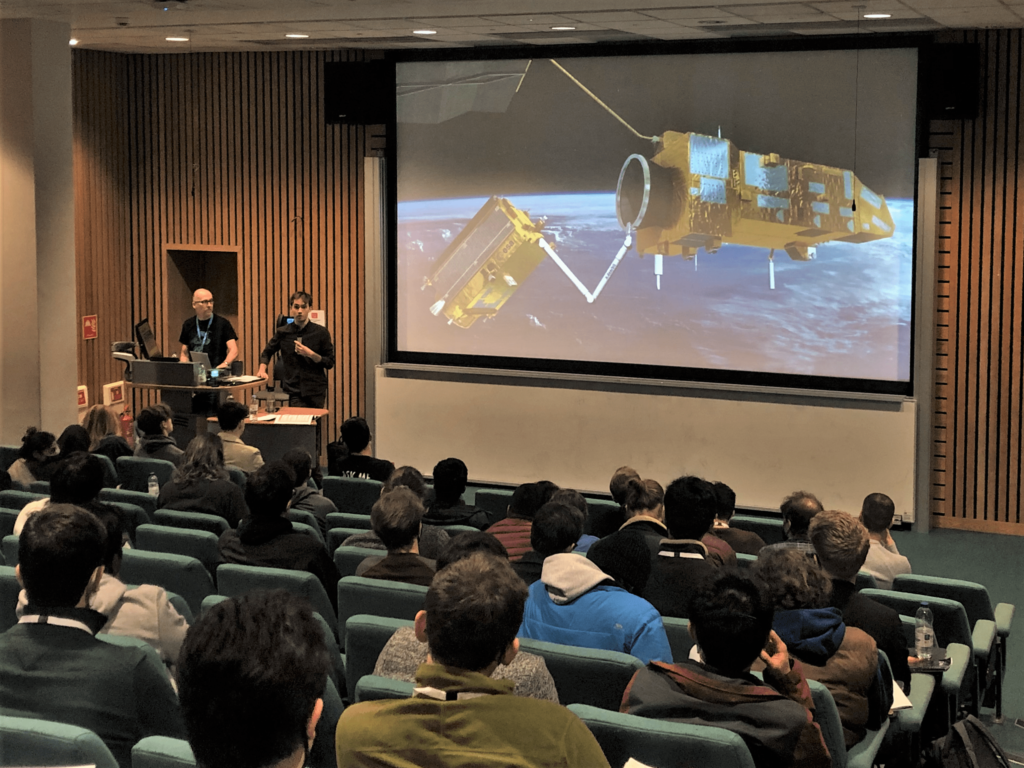
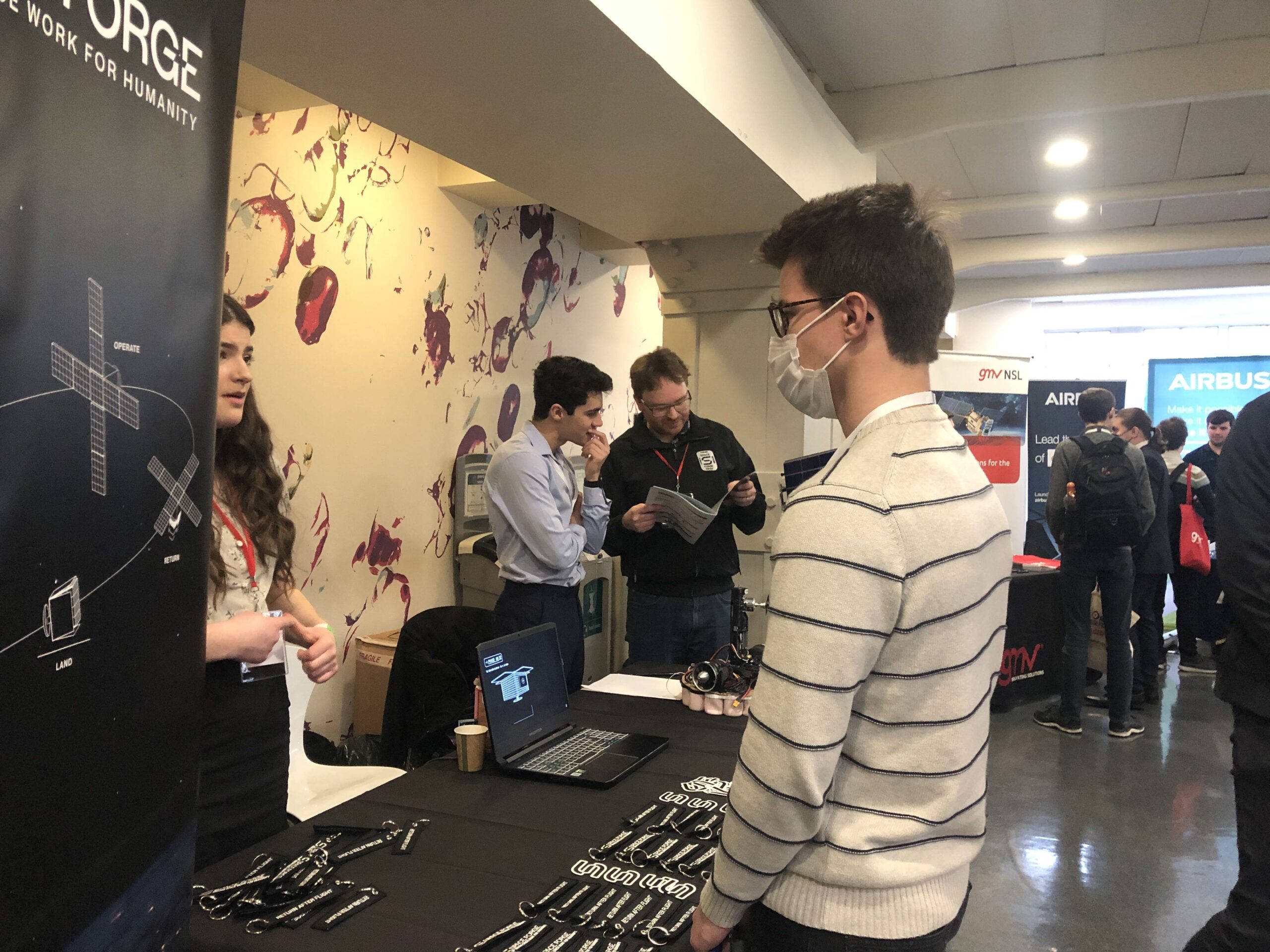
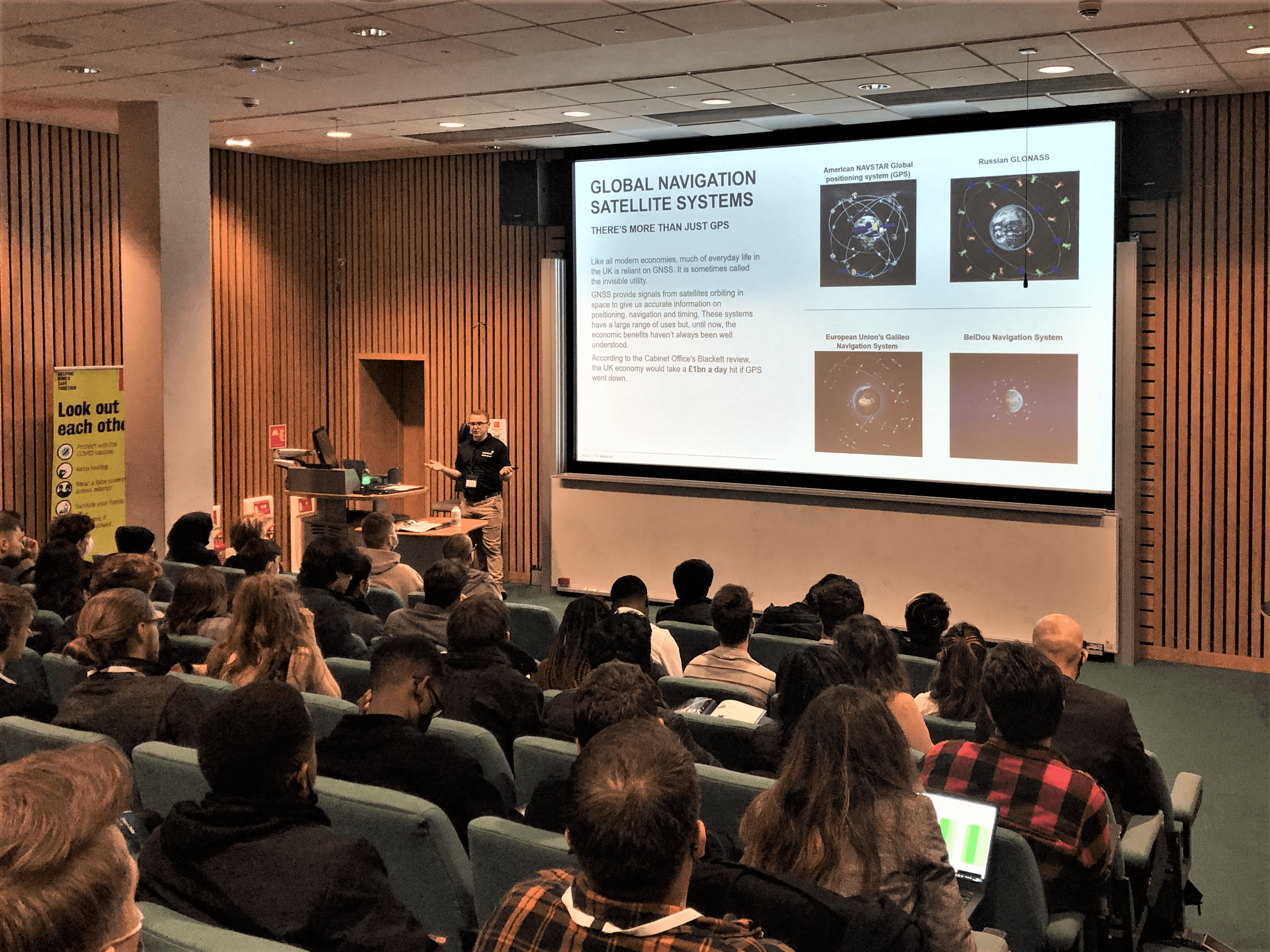
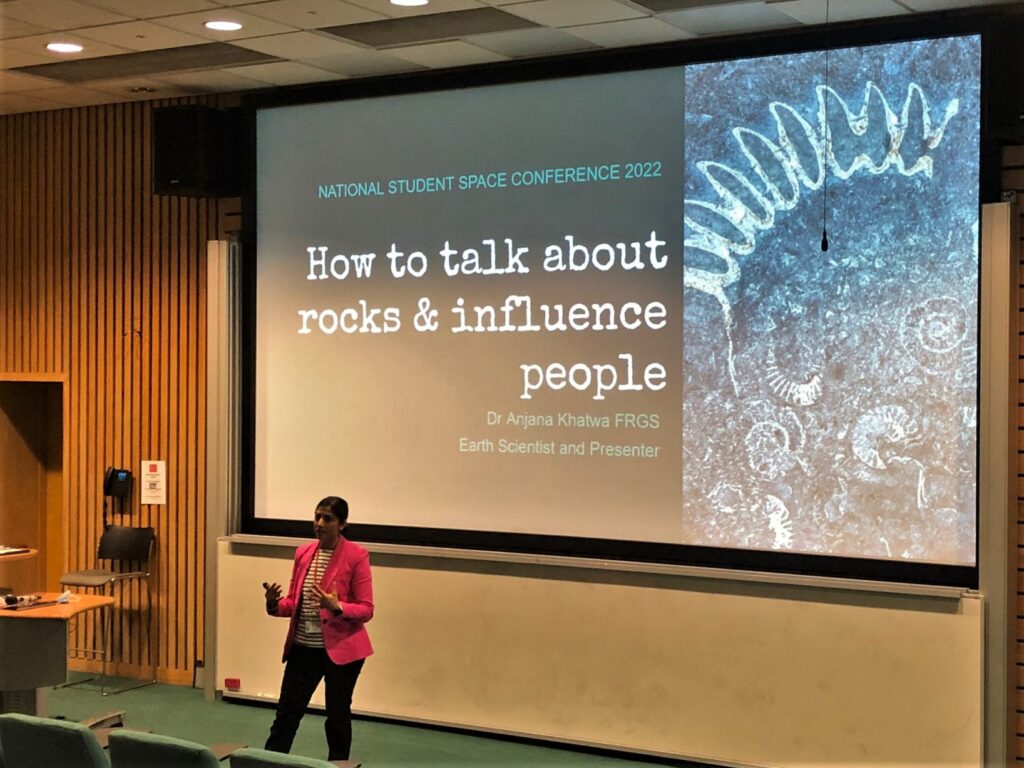
Proud corporate partners with
